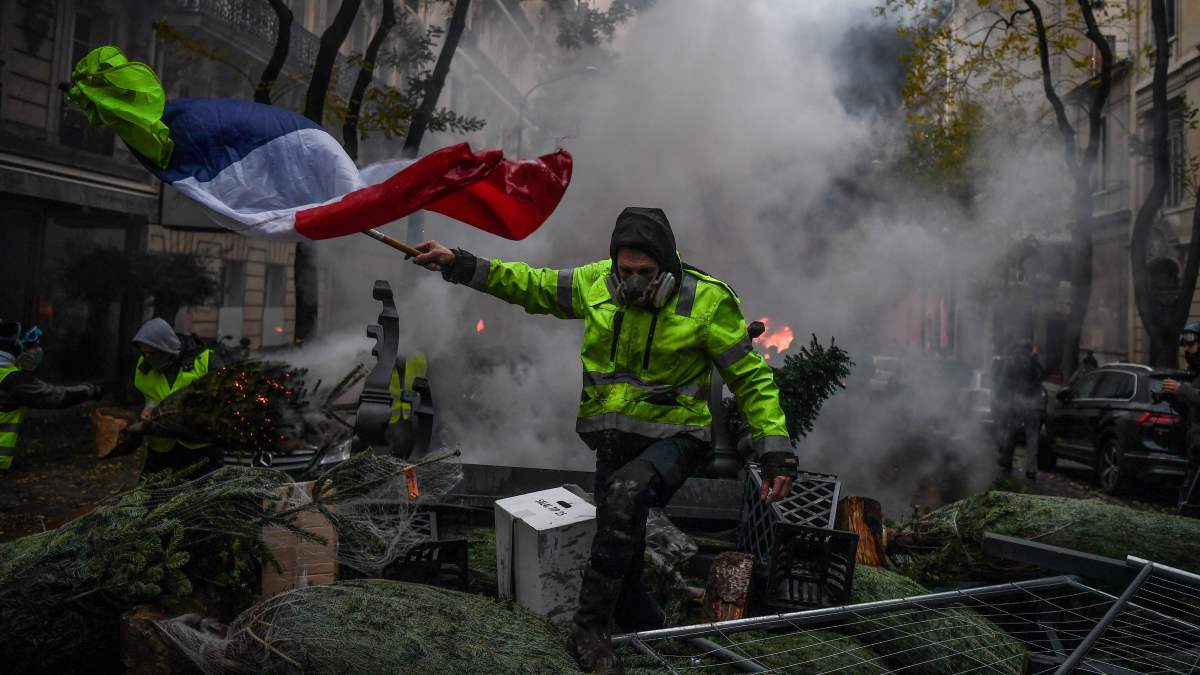France may need a bailout by the International Monetary Fund, the economy minister has said, amid political chaos that is hampering hopes of reducing the country’s eye-watering debt.
Eric Lombard was speaking amid widespread predictions that President Macron’s weak, minority government will fall next month after François Bayrou, the prime minister, said he would seek a confidence vote in parliament.
With opposition parties from the radical left France Unbowed to the populist right National Rally all saying they will vote to bring down the cabinet, Bayrou’s move was described as “suicidal” by Nicole Dubré-Chirat, one of his own MPs.

The economy minister, Eric Lombard
DIMITAR DILKOFF/AFP/GETTY IMAGES
His fall would leave the country rudderless and without a budget at a time when it has a debt of €3.3 trillion and a predicted deficit this year equivalent to 5.4 per cent of GDP.
The political turbulence spooked investors. The French stock market fell 1.73 per cent in early trading and the country’s banks, which hold much of the debt, took an even bigger hit.
• The ‘French Elon Musk’ bankrolling the country’s populist right
As concerns about the economy pushed the ten-year bond yield above 3.5 per cent, Lombard said: “I bet that within a fortnight, our debt will be costing more than Italy’s.”

François Bayrou, the prime minister, with Lombard in July
DAMIEN MEYER / AFP
The turnaround is a humiliation for Macron who came to power in 2017 amid claims that he was the “Mozart of finance” only to preside over an historic decline.
Anne-Sophie Alsif, head economist at BDO consultancy, told Le Parisien that not since the 1960s had French yields been higher than Italy’s.
It could get even worse, according to Lombard. The minister said he did not want to scare his compatriots but added that “a risk exists that the IMF will intervene”. The government “hopes to and must avoid” a scenario similar to the one that engulfed the UK in the 1970s, he said.
Bayrou has announced plans for spending cuts and tax rises totalling €43.8 billion to head off what he has called a “national emergency”. But his budget, which includes highly unpopular measures such as the abolition of two bank holidays and healthcare cuts, has encountered massive opposition.
His decision to seek a vote of confidence on September 8 is viewed as the last, desperate gamble for a prime minister who knows his days are probably numbered.
Boris Vallaud, a leading Socialist MP, said the prime minister had in effect offered his resignation. Politicians on all sides of the spectrum agreed, talking about Bayou as though he was already history.
Nicolas Metzdorf, an MP in the ruling coalition, said: “I hope that a new government will be appointed very quickly.”
Marine Le Pen, the leader of the National Rally, called for new parliamentary elections to end the stalemate. Jean-Luc Mélenchon, the France Unbowed leader, urged Macron to resign, which would lead to an early presidential election.

Marine Le Pen
JULIEN DE ROSA/AFP/GETTY IMAGES
Adding to the chaos, calls started on the internet by a group of far-right conspiracy theorists for nationwide strikes, protests and blockages on September 10 have gone viral and been taken up by the left and by unions.
Telegram chat groups are continuing with preparations for the “let’s block everything” movement despite the prospect of a government collapse. Participants said they were organising general assemblies, planning roadblocks and creating “citizens’ resistance networks”.

